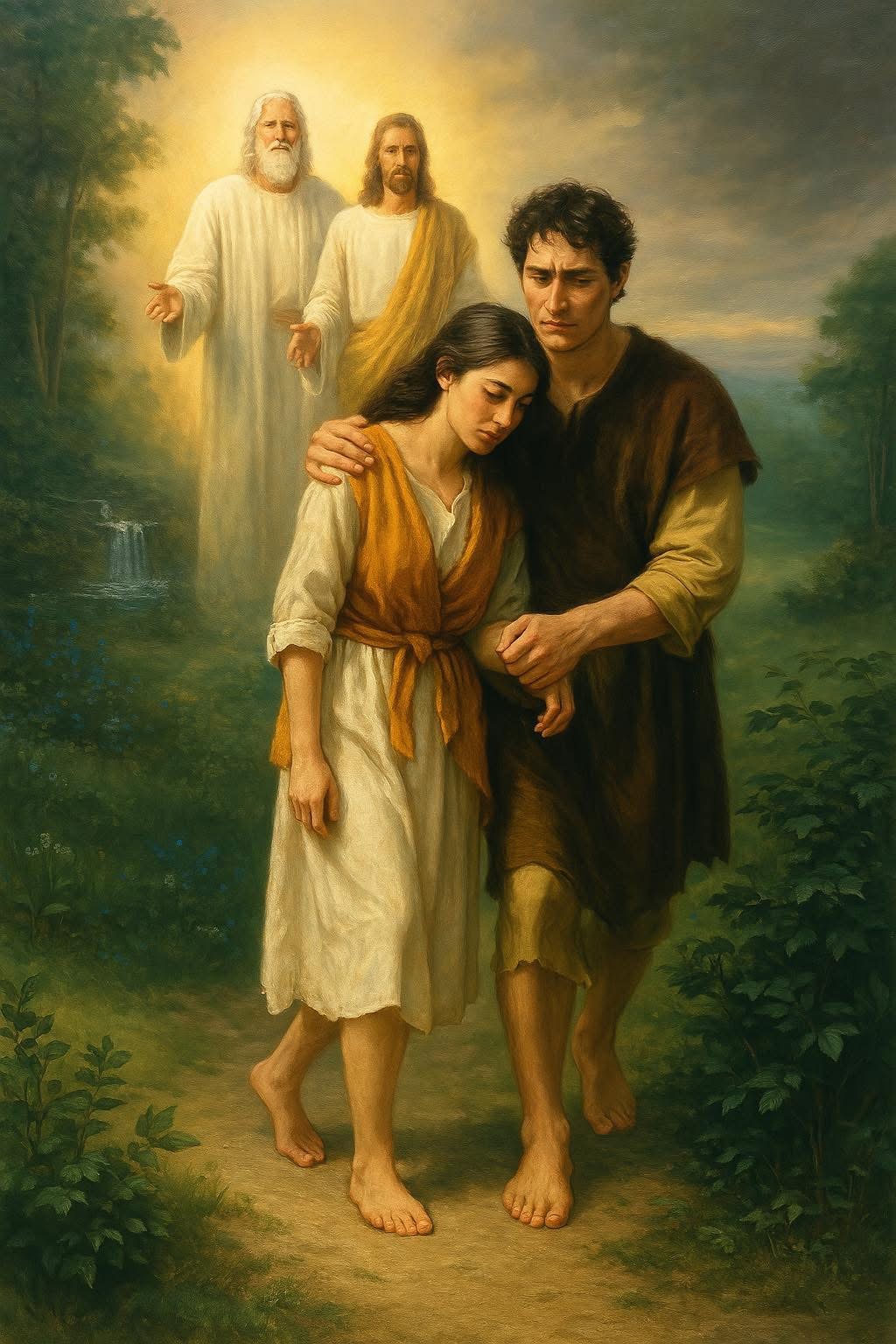The Joy Behind the Fall
D&C 29:40-50

It begins with a fall. Not a stumble, but a cosmic descent. One man, one fruit, one garden—and suddenly, the world is tilted. Adam yields. Eve too. And the gates close behind them. The air outside Eden is colder, harder, unfiltered by the gentle breath of God. Yet what looks like exile is, in truth, the first act of redemption.
The Lord tells us plainly: Adam “became spiritually dead” when he partook of the fruit. But notice the echo in the Lord’s words: this first death is the same as the last. What begins with a fall is not meant to end with one. There is something cyclical here, something divine: the God who casts out is the same God who sends angels. The garden is closed, but heaven is not.
This is the staggering paradox at the heart of the gospel: We were cast out in order to be gathered in. The separation was not a punishment, but a preparation. We speak of “probation” as though it were a sentence, but here the Lord calls it a gift. It is in this span of dusty days, bounded by mortality, that we are given the astonishing chance to choose—to rise.
“I, the Lord God, gave unto Adam and unto his seed, that they should not die as to the temporal death, until…” Until what? Until messengers came bearing news of repentance. Until redemption was declared in the name of the Only Begotten. This was not plan B. It was the plan from before the foundations of the world.
And how merciful the timing! The Lord did not wait for us to become holy before He made a way. He made the way so we could become holy. He did not ask us to be worthy of the Atonement—only willing to receive it.
The language here is sharp but clear: some will rise to eternal life; others will fall into damnation—not because they were unloved, but because they “repent not.” In a world of soft denials and moral blur, these verses pierce. Yet even here, there is no tone of condemnation—only grief. “They love darkness rather than light.” What a tragedy, when the light stands so near.
But then the tone shifts. A gentler sun dawns. “Little children are redeemed from the foundation of the world.” There is a hush here, as if heaven itself leans forward. No sin stains their soul. No darkness clouds their worth. God has declared it so. The Accuser is powerless before their innocence.
And yet—what of our day? What of a world where children are no longer shielded by innocence, but are barraged by images, messages, and ideologies they cannot yet name, let alone withstand? The adversary cannot tempt them directly, but he can tempt the world around them—can tempt us—to surrender their protection. And so, while their spirits remain whole before God, their hearts are too often pierced by a world in rebellion. They are innocent, yes. But they are also exposed. And it falls to us—parents, saints, disciples—to guard the light they carry.
And what God does not require of the child, He does require of the parent. The accountability He withholds from the young, He places with gravity upon their fathers and mothers. The Lord’s justice is precise—but His mercy, even more so.
We are left with a final question, tucked like a whisper into the closing lines: “Whoso having knowledge, have I not commanded to repent?” The Lord does not ask if we are sinless. He asks if we are willing. Willing to turn. Willing to trust. Willing to walk out of Eden and into Zion.
And so, the gate once shut is now open wide. There is no need to wait for angels to descend. The message has come. The Atonement has been wrought. Christ has come into the world—not to shame us, but to save us. Not to banish us from gardens, but to walk with us through deserts, until even death itself is swallowed up in joy.
In the end, Adam’s fall is not our shame. It is our story. And the ending—because of Christ—was written in glory before the world began.
#comefollowme #churchofjesuschristoflatterdaysaints #jesuscristo #jesus #jesuschrist
No comments:
Post a Comment